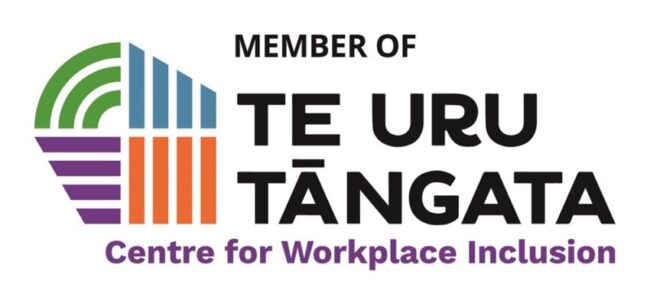Imprisonment for deliberate contraventions of the Commerce Act 1986 is back on the political agenda with the introduction of the Commerce (Criminalisation of Cartels) Amendment Bill (Criminalisation Bill) to the House on 15 February 2018. The Criminalisation Bill received its first reading on 20 February 2018, and is currently being considered by the Economic Development, Science and Innovation Select Committee, which is due to report back on the Bill on 20 August 2018.
What is ‘cartel conduct’?
Cartel conduct, sometimes referred to as multi-party collusion, occurs where competitors work together in order to avoid competing with each other. Cartel conduct includes ‘price fixing’, but it is also wider than this. For our update on cartel conduct, please click the button below.
Prohibition on ‘cartel conduct’ comes into full force on 15 May 2018
Currently, the maximum penalty that can be applied to an individual who engages in cartel conduct is $500,000.
What is proposed under the Criminalisation Bill?
The Criminalisation Bill, if passed, would introduce a criminal offence for cartel conduct, where an individual was deliberately engaged in price fixing or one or more other activities prohibited under the Commerce Act. Individuals convicted under the Act would be liable to imprisonment for a term not exceeding seven years, or a fine of up to $500,000, or both.
History of the proposed criminalisation
New Zealand’s journey towards the criminalisation of cartel conduct could be described, in the words of one Member of Parliament, as a ‘Homeric epic’. On 13 October 2011, the Commerce (Cartels and Other Matters) Amendment Bill was introduced to Parliament. That bill included (amongst other things) a provision introducing criminal sanctions for breach of the new ‘cartel’ provisions contained in the bill. The Commerce (Cartels and Other Matters) Amendment Bill moved to the Select Committee stage in 2013, received its second reading in the House in 2014, and – finally – progressed through the final Parliamentary stages and received royal assent on 14 August 2017.
The eventual passing of the bill pleased those commentators who had watched it languish for almost six years. However, the criminalisation provisions in the bill took a critical hit at the eleventh hour: a supplementary order paper (release date 6 July 2017) deleted the operative criminalisation clause in the bill, removing the proposal to criminalise cartel behaviour. As a result, cartel conduct is not, as stands, a criminal offence in New Zealand.
Next steps
If the current Criminalisation Bill progresses beyond the Select Committee stage, it can be expected to provoke robust debate in the House, and attract significant interest from academic and business quarters.
Various arguments have been advanced in support of criminalising cartel conduct in New Zealand. The initiative would undeniably bring New Zealand’s competition law in line with a number of our key trading partners, including Australia, the United States, the United Kingdom, Canada, Japan and Korea. Supporters of the criminalisation of cartel conduct also observe that the potential for imprisonment focuses deterrence directly on the potential perpetrators, who feel the full effect of the criminal penalty. This can be contrasted with fines, which impact on a company’s profitability and could be viewed by some firms as simply a cost of business.
Concerns have been raised, however, over the possibility of cartel criminalisation generating uncertainty for businesses, creating the risk of a ‘chilling’ effect on legitimate commercial activities. Proponents of criminalisation look to counter this argument by pointing to the availability of defences and exemptions under the Commerce Act, and the guidance published by the Commerce Commission that is intended to assist businesses to understand how the Commission and the courts may interpret and approach the relevant provisions of the Commerce Act. However, the Commission has indicated that it has concerns about the breadth and complexity of the defences proposed under the Bill, which it intends to outline at Select Committee. Furthermore, although guidelines are undoubtedly useful – particularly in more straightforward matters – they are intended to serve as an aid to interpretation and do not carry the force of law. Ultimately it will be for the courts to interpret the relevant provisions of the Commerce Act and determine in each case whether an offence has been committed.
While the Criminalisation Bill is still in its early stages, the idea of criminalising cartel conduct in New Zealand has been well socialised on a political level, and given the support of the current Government, it seems likely that the proposal will be implemented in some form. We will provide another update on the Bill following the release of the Select Committee report later this year.
Business Law Team
If you need any assistance with the sale or purchase of your business, do not hesitate to get in touch with the Business Law team at Lane Neave.
Gerard Dale, Claire Evans, Graeme Crombie, Evelyn Jones, Anna Ryan, Joelle Grace, Peter Orpin, Ellen Sewell, Matt Tolan, Carlo Wan, Kristina Sutherland, Jacob Nutt, Whitney Moore, Alex Stone, Ben Cooper, Lisa Catto
Also in this edition:
Business Law Newsletter:
- Privacy Bill 2018 – key changes ››
- Prohibition on ‘cartel conduct’ comes into full force on 15 May 2018 ››
- Fair Trading (Oppressive Contracts) Amendment Bill ››
Click here for other Corporate Law articles.




